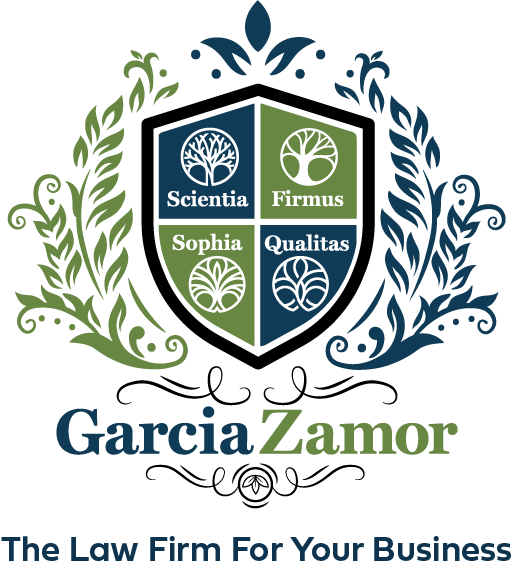CHOOSING A BUSINESS ENTITY – MEETING YOUR GOALS WHILE PROTECTING YOUR BUSINESS
Why isn’t everyone a sole-proprietor? Some people are but for some it doesn’t meet their business needs. Who will own your business – you, you and a spouse, you and another person, several people? Do you wish to separate assets from liabilities to protect your personal and business assets? If there will be more than one business owner who will run the business, make the major and minor decisions? How will the net income or loss be distributed? What compensation will the owners receive, when and how? How will the business be funded – bank loans, capital contributions from owners, funding from investors?
These are just some of the questions that need to be answered to determine which business entity will work for best for your business. Your entity choices include Sole-Proprietor, Corporation (C-Corp and S-Corp), Limited Liability Company (LLC), Partnerships,…each with its own tax reporting requirements and tax advantages. Working with us is important in determining which entity will work for your business goals and the answers to the questions we have mentioned above.
CLEAN BOOKS – THE IRS LIKES THEM AND YOU WILL BREATHE EASIER TOO.
Starting your new business with clean books is not just a good idea it is essential to ensuring you capture all your tax deductible expenses and taxable income.
- The first step is to open a business checking account and obtain a business credit card, if desired. This separation of business and personal expenses reinforces the protection afforded by your business entity.
- Submit an expense report to your new company. During the startup phase of your new company you will undoubtedly use personal funds to pay for business items. Create an expense report with receipts from these expenses. Include the date, payee, amount, and the business purpose. Then reimburse yourself from the business checking account. This will capture the deductible expenses that occurred before you had a business checking account.
- Proper classification of business funding is also important. If the initial deposits into the business are from personal savings or other personal funds it should be recorded as a capital contribution. Monies from family and friends may be classified as loans or, if gifts, a capital contribution. Bank loans will be classified as long term loans with the amount due in the next twelve months as current liabilities.
- We can guide you in tax and accounting related items to process all your bookkeeping including accounts receivable (customer items) and accounts payable (vendor items). It is money well spent to ensure you are up-to-date with collections and vendor payments. Plus at tax time, your books are optimized for preparing tax returns. Utilizing the knowledge of our professional team ensures you won’t miss tax deductions and deadlines.
CHOOSE YOUR BRANDING CAREFULLY – AN EASY WAY TO INCREASE YOUR RETURN ON INVESTMENT.
Considering the criteria for qualifying for a federal trademark registration prior to determining the brand(s) for your business, services, and products may give you an advantage over your future competitors. Careful selection of a strong brand which qualifies for federal trademark protection creates an identity for your business while also providing a tool to prevent competitors from attempting to piggy-back on marketplace good-will that you will earn. A trademark is not only an offensive tool, an additional means to bring law suits against competitors, but also a defensive tool that can protect you from law suits and ensure that you have the greatest advantage possible if you end up in the court room. Equally critical is that federally registered trademarks can result in lowering your legal expenses in the event you end up in court. For an ongoing business it is not uncommon that the cost of properly trademarking its brands eventually pays for itself. With the proliferation of Internet company reviews, having a federal trademark registration can really protect your business from copiers (regardless of whether they are accidental copiers) even if they are in another state. Additionally, established brands can significantly enhance the commercial value of your business, facilitate franchising, and serve as collateral for business loans.
STAY FOCUSED ON THE BIG PICTURE – GOAL SETTING.
Take the time to imagine the type of business you want to own when your business is ‘grown-up’. Part of getting from where you are today to where you want to be is careful goalsetting. Simply put, goalsetting is the essential ingredient in most successful businesses. First, you need to write down a set of objectives that you wish to reach over the next year. Goals vary from business to business and it is important to find out which goals resonate with you. A few examples of goals follow.
- How many new customers do you want to have?
- In which organization(s) do you wish to establish a reputation?
- What amount of infrastructure and/or inventory do you wish to assemble?
- How much revenue do you wish to be making at the end of the year?
When setting goals is important that they be reasonably ambitious, but not completely unrealistic. Once you have set your goals for the year you need to set benchmarks to track progress. Benchmarks can be intermittent targets on your way to reaching a specific goal. With benchmarks in place it is important to list concrete steps for attaining each goal and to set timelines for taking each step. Once you’ve done this you have your year one battle plan in place. Failure to goal set is like taking a road trip without a map-you’re just not likely to get to your destination.
If you have any questions regarding accounting and/or bookkeeping please contact TBooks. Teresa Sanders has been helping individuals and business with their bookkeeping and accounting needs for over twenty years.
If you have any questions regarding branding, trademarks, patent planning or other intellectual property matters, please contact Garcia-Zamor Intellectual Property Law, LLC. Ruy Garcia-Zamor has been helping individuals and businesses with their intellectual property needs for over nineteen years.







